Input interpretation

2, 4, 4-trimethyl-1-pentanol
Chemical names and formulas
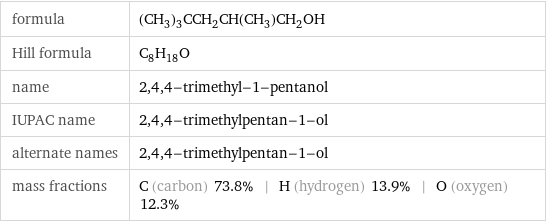
formula | (CH_3)_3CCH_2CH(CH_3)CH_2OH Hill formula | C_8H_18O name | 2, 4, 4-trimethyl-1-pentanol IUPAC name | 2, 4, 4-trimethylpentan-1-ol alternate names | 2, 4, 4-trimethylpentan-1-ol mass fractions | C (carbon) 73.8% | H (hydrogen) 13.9% | O (oxygen) 12.3%
Lewis structure
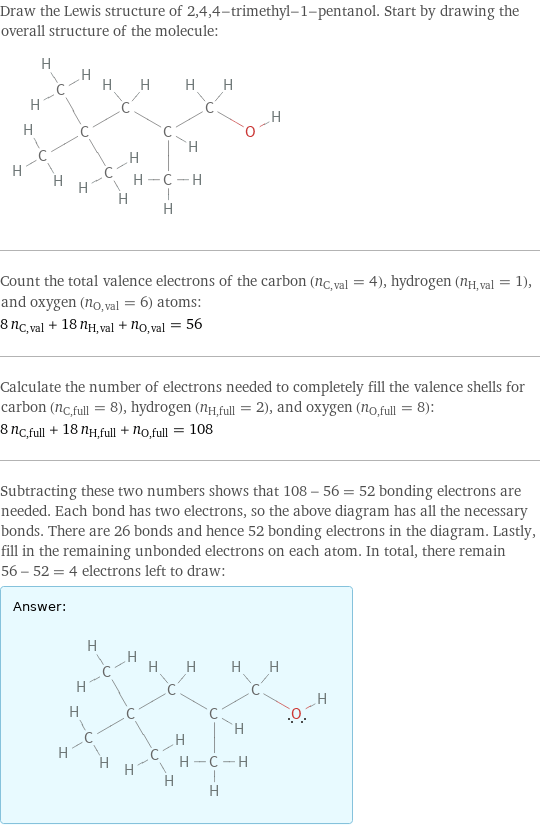
Draw the Lewis structure of 2, 4, 4-trimethyl-1-pentanol. Start by drawing the overall structure of the molecule: Count the total valence electrons of the carbon (n_C, val = 4), hydrogen (n_H, val = 1), and oxygen (n_O, val = 6) atoms: 8 n_C, val + 18 n_H, val + n_O, val = 56 Calculate the number of electrons needed to completely fill the valence shells for carbon (n_C, full = 8), hydrogen (n_H, full = 2), and oxygen (n_O, full = 8): 8 n_C, full + 18 n_H, full + n_O, full = 108 Subtracting these two numbers shows that 108 - 56 = 52 bonding electrons are needed. Each bond has two electrons, so the above diagram has all the necessary bonds. There are 26 bonds and hence 52 bonding electrons in the diagram. Lastly, fill in the remaining unbonded electrons on each atom. In total, there remain 56 - 52 = 4 electrons left to draw: Answer: | |
3D structure
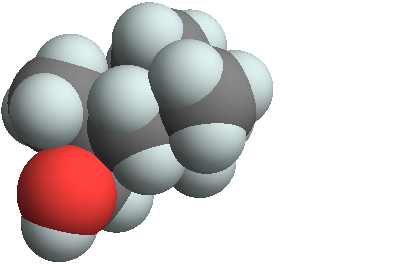
3D structure
Basic properties
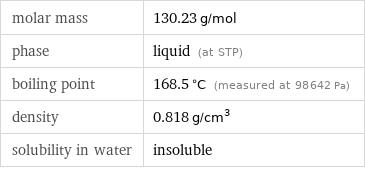
molar mass | 130.23 g/mol phase | liquid (at STP) boiling point | 168.5 °C (measured at 98642 Pa) density | 0.818 g/cm^3 solubility in water | insoluble
Units

Liquid properties (at STP)
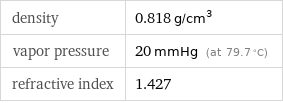
density | 0.818 g/cm^3 vapor pressure | 20 mmHg (at 79.7 °C) refractive index | 1.427
Units

Chemical identifiers
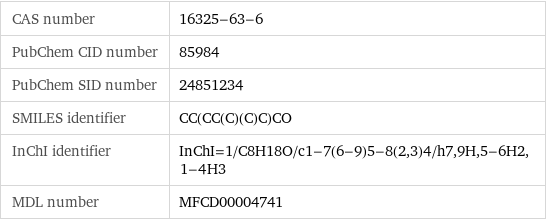
CAS number | 16325-63-6 PubChem CID number | 85984 PubChem SID number | 24851234 SMILES identifier | CC(CC(C)(C)C)CO InChI identifier | InChI=1/C8H18O/c1-7(6-9)5-8(2, 3)4/h7, 9H, 5-6H2, 1-4H3 MDL number | MFCD00004741
Safety properties

flash point | 60 °C

DOT hazard class | 3 DOT numbers | 1987